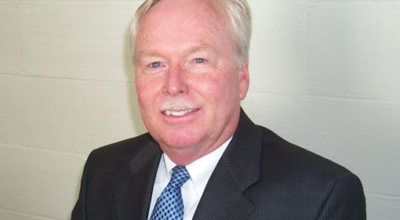Robbing Peter to pay Paul
Published 5:58 pm Tuesday, May 17, 2011
As of Monday of this week, we have officially entered the days of “robbing Peter to pay Paul.”
That’s a saying that dates back, according to an online site, to at least the time of John Wycliffe.
Wycliffe was a very influential English scholar and writer who is most famous for his translation of the Bible. He died of a stroke on the last day of 1384, but his body was later exhumed by the Roman Catholic Church. Wycliffe’s body was not dug up for saintly purposes; rather it was dug up to be burned for heresy. I guess, if I had my choice of being burned dead or alive, I’d take the Wycliffe way.
During his lifetime he published a book of English sayings or writings. In his book, “Selected English Works” there was the expression robbing Peter to pay Paul. That saying usually means that we take funds or money from one account to pay another account.
This past Monday, the Treasurer of the United States of America, Timothy Geithner, donned his green visor and informed Congress that the debt limit of $14.3 trillion had been reached. The USA could borrow no more money to finance its affairs without an official act of Congress.
What actually is the debt ceiling?
We know what debt is because just about everyone I know has experienced debt in some way. Most people can’t simply buy houses, cars, major appliances, etc., out of their wallet or checking account. We have grown accustomed to the “get it now!” way of living.
Still, a wise person will not take on too much debt with too many payments. That kind of living is very stressful and subject to failure because of unforeseen circumstances. We lose jobs, get sick, have disasters or other variables come into play. If we have gotten in “over our heads,” as the saying goes, we cause ourselves much pain.
The debt ceiling, as in the USA government situation, is the restraining total of money that Uncle Sam can borrow to finance all of its activities. The payments to all the departments of the government are made so that they may function with a certain amount of efficiency. Or in the case of some departments with a whole lot of inefficiency.
We raise our money by taxes, fees, the selling of natural resources, and by offering investment opportunities in the USA. Those are called bonds. Investors have always bought U.S. bonds because they are very, very dependable. Uncle Sam uses their money and, then, pays them back with interest.
The problem that we have been having for a long time is that we are spending a whole lot more than we take in. That is a recipe for ruin, whether for an individual, a family or a country. The chickens finally come home to roost and the piper must be paid.
You and I probably understand that. I’m thinking of the scripture in Romans, “We’ve all fallen short of the glory of God.” All of us either have done it ourselves or know others, perhaps children or friends, who have “fallen short of the glory of financial wisdom.” I know I have.
The only thing that I’m not sure about is that whether our leaders in Washington understand that saying about chickens coming home to roost. I say that because, instead of understanding that our financial house is made of cards and subject to falling, our leaders seem to be taking their own, sweet time in addressing this issue. There seems to be no sense of urgency. Actually sometimes I think I hear no sense of any kind from Washington.
It’s not like the reaching of the debt ceiling came on us suddenly. The first time a debt ceiling was proposed was by an act of Congress known as the Second Liberty Bond Act of 1917. The passage of that bill came about because of World War I.
Before that, Congress held a pretty tight rein on the spending of the United States government. You probably know that all spending by Uncle Sam must be approved by the Congress. Up until 1917, every piece of paper and staple to hold them together was looked at carefully. In a way, they looked at the checking account balance before they approved expenditures.
If Uncle Sam didn’t have enough money in the bank for what was proposed, it had to be raised. With the war, however, it was thought that it was too cumbersome to come to the Congress for every rifle and bullet. So they passed the bill that established a high limit to what could be borrowed. We’ve been raising the debt ceiling ever since. We’ve never lowered it!
Over the last almost 100 years, ever since 1917, the debt ceiling has been raised at least 74 times. Many of those times are self explanatory. For instance, World War II could only be fought and won with unlimited borrowing and building capabilities. That wasn’t the time to pinch pennies.
In the last 10 years, though, we have raised the debt ceiling 10 times, which averages out to about once a year. Something’s wrong with our spending.
Timothy Geithner says that he can rob Peter to pay Paul until August; then it will be Armageddon unless the debt ceiling is raised. I don’t know what to think. No one seems to be shooting straight and some say this and some say that. What are we paying these guys and gals for?
I do know this. An individual or family cannot go on and on borrowing money or robbing from Peter to pay Paul. It has to stop somewhere and at sometime. Does that sound financial maxim apply in all cases? Is it time to stop the borrowing?
The Rev. Lynn Roberts is pastor of the Sutton Chapel United Methodist Church, located on Vada Highway.



